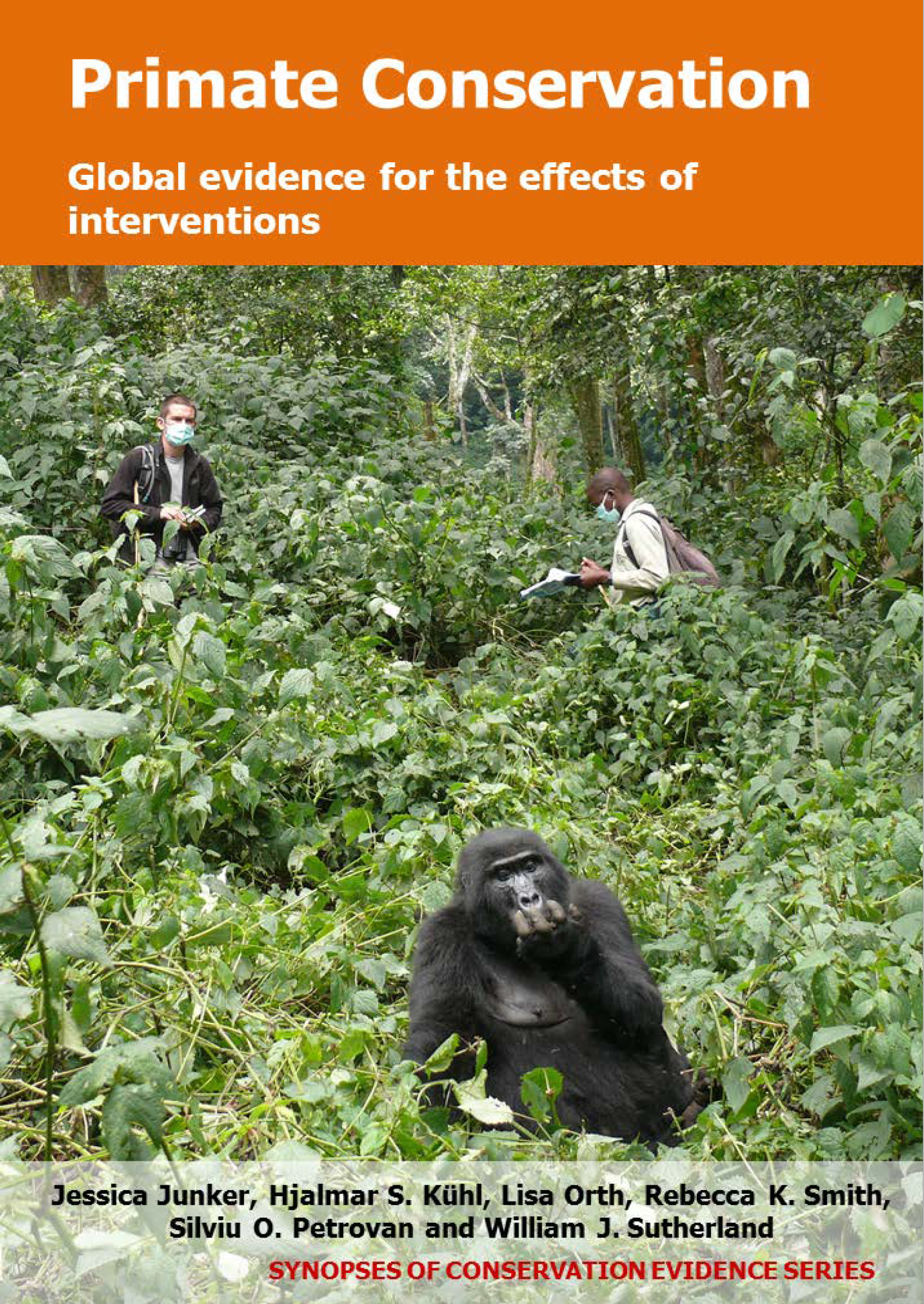Implement a ‘no-feeding of wild primates’ policy
-
Overall effectiveness category Unknown effectiveness (limited evidence)
-
Number of studies: 1
View assessment score
Hide assessment score
How is the evidence assessed?
-
Effectiveness
40% -
Certainty
20% -
Harms
0%
Study locations
Supporting evidence from individual studies
A controlled before-and-after study in 1950-2010 at multiple sites in Japan found that Japanese macaques Macaca fuscata were rapidly increasing in population size, conflict rate with farmers and forest damage at food-provisioned sites compared to non-provisioned sites, but reducing feeding resulted in lower productivity, population decreases, less crop-raiding and forest damage in the long term. The Takasakiyama population increased from 166 macaques in 1950, before food provisioning, to over 2000 in 1990, but then declined by almost 50% by 2011 after food provisioning was progressively reduced in 1973-1989 and then stopped (data in graphs). Reducing provisioning resulted initially in higher crop damage (data not provided). Birth rate was higher in sites with food provisioning (0.49-0.54 births/female/year) than in non-provisioned sites (0.27-0.35) but productivity declined after provisioning was limited and annual population growth reduced from 13% in 1952-1962 to 4% in 1965-1970, 3% in 1970-1980, 1.1% in 1980-1990 and -0.65% in 1990-2000. In 1952-1972 food provisioning took place at 41 free-ranging monkey parks to attract tourists and reduce crop damage; 30 naturally occurring populations and 11 sites with translocated ‘problem’ macaques. Provisioned foods (sweet potato, wheat, soybean and peanuts) were far more energy-rich than natural macaque food. Food provisioning by staff was reduced since 1965 and food provisioning by visitors was prohibited in 1993 at Takasakiyama.
Study and other actions tested
Where has this evidence come from?
List of journals searched by synopsis
All the journals searched for all synopses
This Action forms part of the Action Synopsis:
Primate Conservation
Primate Conservation - Published 2017
Primate Synopsis





)_2023.JPG)














